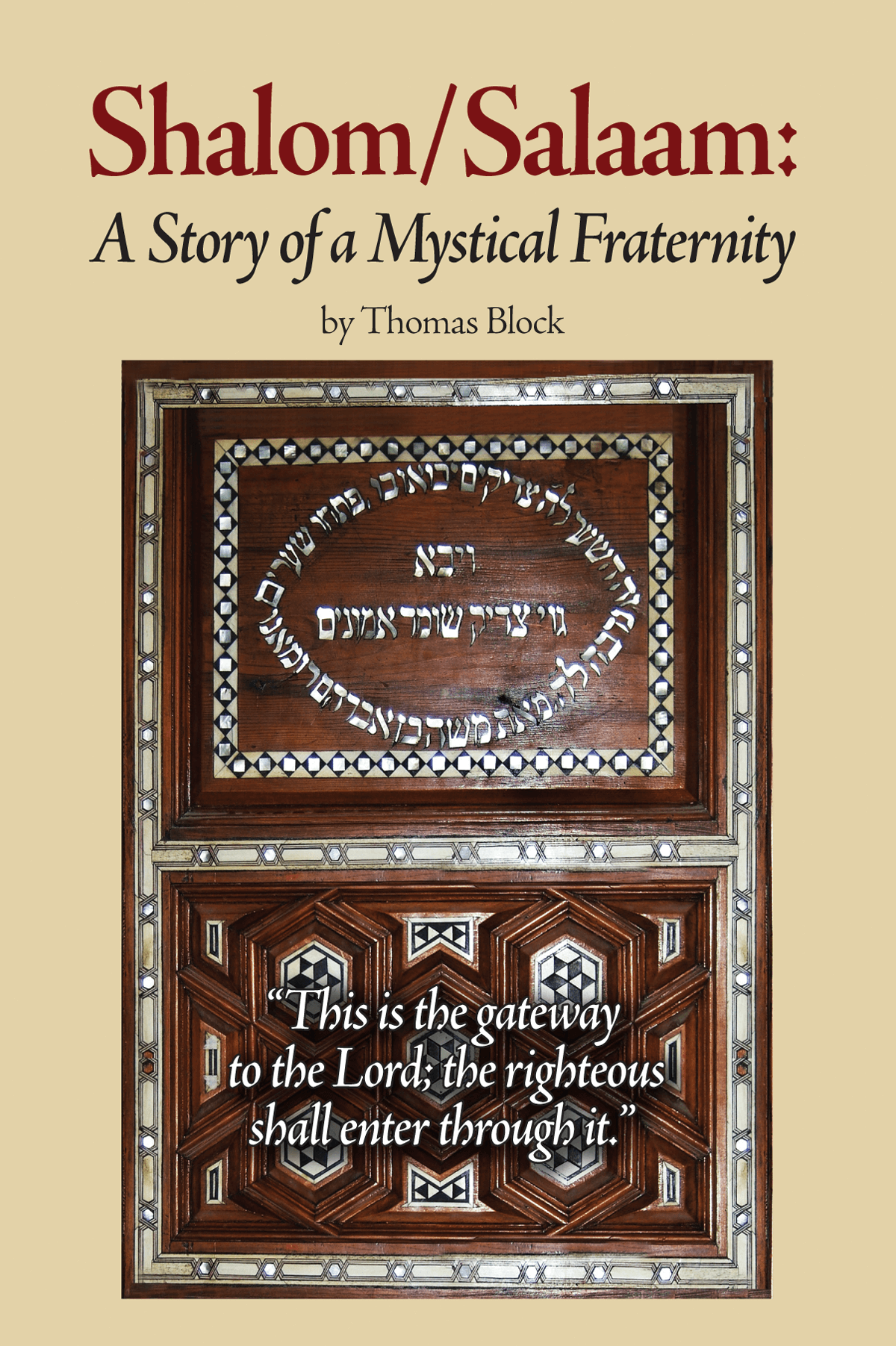Shalom/Salaam: A Story of a Mystical Fraternity
$25.95
Shalom/Salaam: A Story of a Mystical Fraternity is a groundbreaking study introducing to the popular reader, the story of respectful and loving interfaith relations between Sufis (Islamic mystics) and Jewish spiritual thinkers for nearly one thousand years.
“Block’s evident enthusiasm for the revelation of these common roots as a way forward for Muslim-Jewish relations propels this great read.” – Publishers Weekly, Oct 27, 2010
Publishers Weekly Review:
Block, a Jew, independent scholar, and “citizen-diplomat,” spent more than 10 years researching and uncovering the hidden links between the mystical systems within Islam and Judaism, expressed in Sufism and Kabbalah, respectively. In what he believes is the only book on the topic, Block demonstrates the influence of Sufism on historic and modern Kabbalah and even Judaism, assembling and juxtaposing a variety of sources. Seminal medieval figures in Kabbalah (whom Block affectionately refers to as “Jewish-Sufi” and whom he profiles throughout) looked to Sufi themes and attitudes for “innovation” in their own practice—so successfully that some hymns sung in synagogues today, among other practices, are clearly Islamic in origin. An entire chapter devoted to Spanish Jewish Kabbalists’ usage of Sufism describes the glory of the multifaith, historic Cordoba and Arab Spain of the eighth through 15th centuries, where Jews participated as equals in the Muslim-run state. Block’s evident enthusiasm for the revelation of these common roots as a way forward for Muslim-Jewish relations propels this great read.
Reviewed by Pamela Jay Gottfried
In a world where so many writers of non-fiction illustrate facts and figures in black and white, Thomas Block illuminates the history of Jewish and Muslim mysticism in a vividly-hued portrait. Shalom/Salaam: A Story of Mystical Fraternity is a well researched and carefully drawn masterpiece. In this culmination of more than ten years of sustained interest and thorough research, Block has created an impressive manual for his readers to explore the connections between these mystical traditions.
Reading Block’s text, I was reminded of a Medieval Jewish History course that I took in rabbinical school, a survey course which highlighted the development of Jewish law, poetry and liturgy during the Golden Age of Spain. While the history professor noted the influence of Islam and Arabic language on Jewish law and literature, I do not recall any mention of Sufism. During my years at the Jewish Theological Seminary of America, the curriculum was biased toward Talmud and Rabbinics and rather lean in the area of Jewish mysticism and Kabbalah. Recently, however, I have become interested in the religious texts of Islam, particularly the Quran and Arabic poetry. My limited background in this discipline made Block’s work a particularly gratifying read. In Shalom/Salaam, Block pulls together previously disparate sources of Jewish mystical and Sufi texts to demonstrate the many ways in which Muslim mystics influenced Jewish mystical writings, and vice-versa. In many instances, he makes a persuasive argument for shared sources. In addition, Block has labored in the field to produce an impressive array of endnotes and a lengthy bibliography for readers who are interested in further study.
Block notes in various chapters that he is not an expert in this field and that some of his interpretations of the texts are subject to scholarly debate. At the same time, it is clear that he has mastered the topic, citing academic luminaries in the field, including Gershom Scholem, Moshe Idel and Michael Sells. While their books and articles are academic, Block’s writing is accessible to a general readership. Rather than present a belabored chronology of influences, Block employs an interpretative method reminiscent of Daniel Boyarin’s “Intertextuality,” emphasizing the interplay between generations of mystics through their writings. His conversational tone draws the reader into the “story of a mystical fraternity,” as promised in his subtitle. For example, in the midst of an intricate presentation of the influence of Sufism on the later Kabbalist in Safed, Block writes: “Fast forward a couple hundred years and we come to another group of Kabbalist living in the Holy Land who still were deeply inspired by Sufism, and who would have a direct influence on the flowering of Hasidism in the 18th century.” For the student of religion and literature who finds reading historical documents burdensome, Block’s prose is refreshing and comprehensible.
In his epilogue, Block’s modestly stated goal convinces readers to aspire to reach what may be in reality a lofty ideal: “The purpose of this study is not simply to outline the deep connection between Judaism and Islam, but also to begin the vital process of acknowledgement. Although political issues currently separate the two People, their paths are deeply and undeniably intertwined…Jews and Muslims must recognize how much they share at the very core of their spiritual beings.” As a rabbi concerned with creating unity among the children of Abraham, I couldn’t agree more. Block has given those of us seeking to acknowledge one another a tremendous gift in Shalom/Salaam: A Story of Mystical Fraternity.
-Pamela Jay Gottfried is an ordained rabbi and teacher of World Religions at the Brill Institute for Jewish Learning. She is also a founding member of 100 People of Faith in Atlanta.
- 9781891785481
- 245
